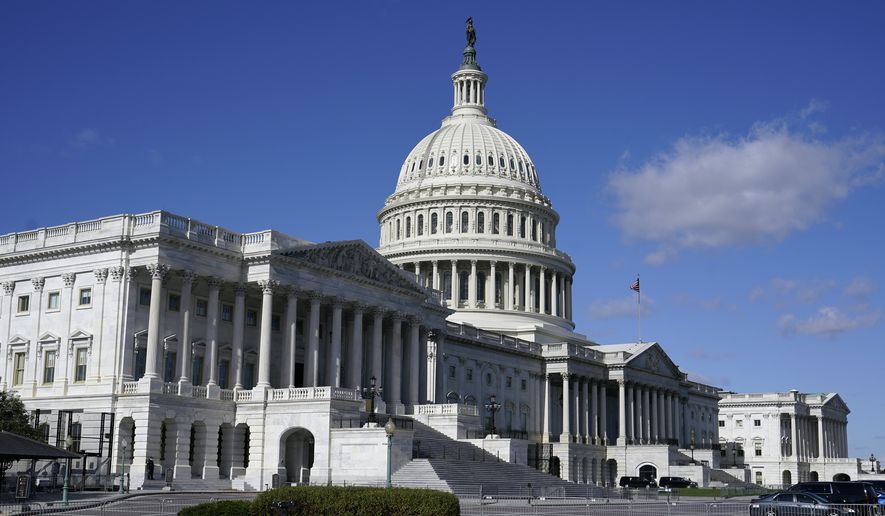Congressional appropriators have unveiled a stopgap funding measure to avoid a government shutdown that will occur Saturday unless lawmakers take action.
From military and humanitarian aid for Ukraine to money for residents experiencing a water crisis in Mississippi, the legislation includes tens of billions of dollars in emergency spending.
The stopgap spending bill, which would fund the government through Dec. 16 while lawmakers work on an annual budget, includes:
• $12.3 billion for military and humanitarian aid to Ukraine, adding to the tens of billions of dollars that Congress has already appropriated for the war-torn country.
• Another $3.7 billion worth of weapons from U.S. stockpiles that President Biden is authorized to provide to Ukraine.
• $2.5 billion for wildfire damage in New Mexico.
• $2 billion for other communities impacted by natural disasters since 2021.
• $1.5 billion to replenish U.S. weapons stockpiles provided to Ukraine.
• $1 billion for a low-income heating program, known as the Low Income Home Energy Assistance Program
• $112.5 million to boost security at U.S. courthouses and federal court facilities.
• $20 million for Jackson, Mississippi, to address its water crisis by making critical water and wastewater infrastructure improvements.
• $35 million to respond to potential nuclear and radiological incidents in Ukraine, and prevent the illicit smuggling of nuclear and radiological material.
SEE ALSO: Manchin paints Sanders as extremist threat over energy impasse as spending deadline looms
Not included in the stopgap funding measure is the Biden administration’s requests for $22 billion to combat COVID-19 and $3.9 billion to fight monkeypox.
The spending to address nuclear dangers in Ukraine follows Russian President Vladimir Putin’s threat against Ukraine’s nuclear power plants and his suggestion that he would use nuclear weapons in the war.
Attached to the spending bill is an energy proposal from Sen. Joe Manchin III of West Virginia to streamline the federal approval process for energy projects, but the conservative Democrat’s provision is likely to be defeated in a procedural vote Tuesday evening because of bipartisan opposition.
If that occurs, Senate Majority Leader Charles E. Schumer, New York Democrat, is expected to strip the energy portion from the funding measure to avoid a fast-approaching shutdown just weeks before the November midterms.
In exchange for Mr. Manchin’s crucial support to pass Democrats’ tax-and-climate-spending law, Congress’ Democratic leaders and the White House agreed to hold a vote on his energy permitting legislation before the end of September.
Senate Appropriations Committee Chairman Patrick Leahy, Vermont Democrat, echoed the sentiment of many lawmakers from both parties about Mr. Manchin’s provision, saying he was “disappointed that unrelated permitting reform was attached to this bill.”
However, he still urged for its passing.
“This is a controversial matter that should be debated on its own merits,” Mr. Leahy said of the energy permitting. “However, with four days left in the fiscal year, we cannot risk a government shutdown; we must work to advance this bill.”
The ranking Republican on the committee, Sen. Richard Shelby of Alabama, warned that he — like most GOP senators — will oppose it “if the Democrats insist on including permitting reform.”
• Ramsey Touchberry can be reached at rtouchberry@washingtontimes.com.




Please read our comment policy before commenting.